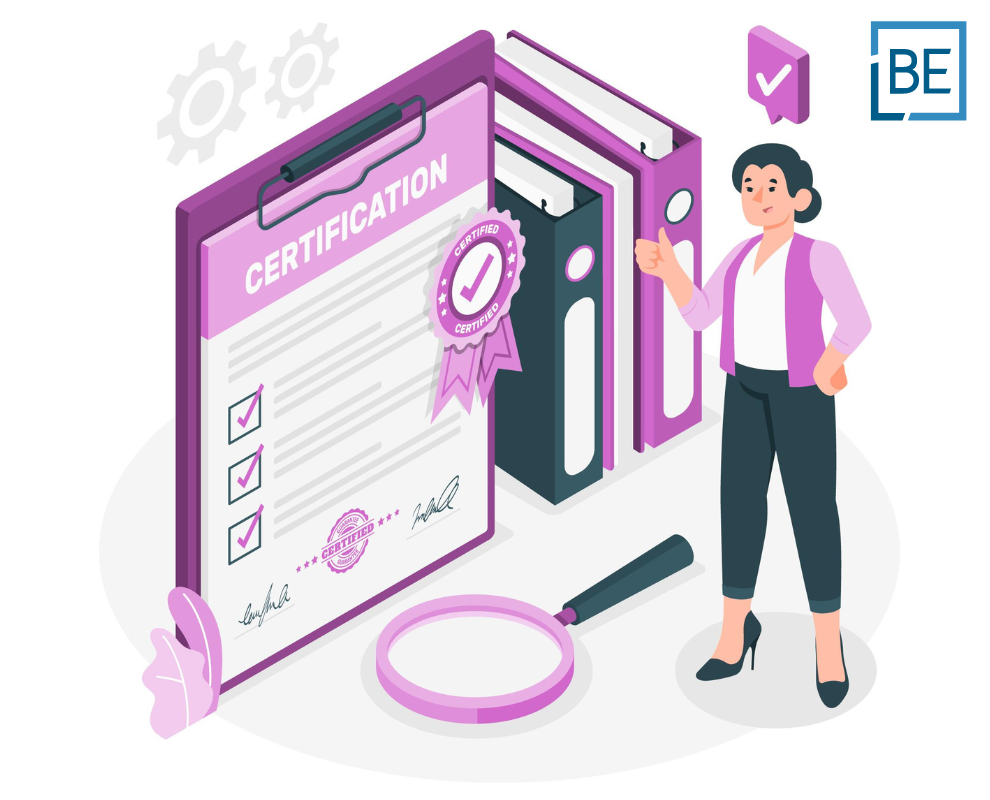Belaws Home ›› Thailand ›› Blog ›› The Ultimate Guide to Obtaining a Foreign Business License in Thailand
legal
Foreign Business License in Thailand – Ultimate Guide 2024
23/06/2023
Foreign-owned businesses looking to operate in Thailand often face various legal restrictions to what business activities they can undertake per the Foreign Business Act (FBA). Obtaining a Foreign Business License (FBL) is important to ensure compliance and unlock business opportunities.
The Foreign Business License is awarded to foreign companies and investors who wish to participate in sectors or industries typically restricted to Thai citizens under the Foreign Business Act. The need for an FBL arises from the desire of foreign companies to have majority ownership and avoid the requirement of having a Thai partner.
In this guide, we will navigate the intricate process of obtaining a Foreign Business License in Thailand and shed light on the key requirements and procedures involved.
Key points
- Foreign businesses operating in Thailand must obtain a Foreign Business License (FBL) if undertaking one of the 50 restricted business activities to comply with the Foreign Business Act (FBA).
- The FBL allows foreign companies to engage in business activities typically restricted to Thai companies.
- Business activities are categorized into List 1 (strictly prohibited), List 2 (related to national safety and culture), and List 3 (affecting Thai competitiveness) under the FBA.
- Examples of businesses requiring an FBL include retail/wholesale (exemption available for companies with at least 100 million THB of registered capital), hospitality/tourism, restaurants/food services, education/training, real estate/property development, telecommunications/broadcasting, legal/accounting services, healthcare/medical services, advertising/media agencies, and security services.
- The application process involves initial consultation, document preparation, submission, review, departmental approval, licence issuance, compliance, and reporting.
What is the Foreign Business License (FBL)?
A Foreign Business License (FBL) is a licence awarded to foreign companies or investors intending to engage in business activities typically restricted to Thai companies under the Foreign Business Act. The FBL allows foreign businesses to operate legally in Thailand and participate in certain industries or sectors otherwise limited to Thai citizens.
The FBL is required to ensure compliance with Thai laws and regulations regarding foreign investment and business activities. It proves the foreign company has obtained the necessary permission and authorization to operate in the country’s specific business sectors or industries.
Under the Foreign Business Act, approximately 50 business activities are restricted to foreign businesses. If a business wishes to undertake one of these activities, foreign ownership of a limited company is capped at a maximum of 49.99% (unless an FBL or a BOI promotion has been obtained). If a foreigner owns 50% or more of the shares of a company, it is considered a foreign company. Companies with Thai shareholders who own over 50% of the shares are considered Thai companies and are not subject to the restrictions of the FBA.
By obtaining an FBL, foreign businesses can navigate legal restrictions, access restricted industries, tap into new business opportunities, and comply with Thai regulations. It is essential for foreign companies seeking to establish and operate a business presence in Thailand.
Do all business structures in Thailand require a Foreign Business Licence for restricted activities?
Companies that receive a BOI promotion can apply for a Foreign Business Certificate. As mentioned, the FBA restricts foreigners or foreign-owned companies from undertaking over 50 categories of business activities in Thailand; however, having a Foreign Business Certificate removes this restriction, and the company can undertake such activities.
In practice, all BOI-promoted companies who apply will be granted a Foreign Business Certificate.
Furthermore, BOI-promoted companies can operate as 100% foreign-owned entities, enabling them to operate businesses in Thailand as foreign-owned businesses and undertake restricted activities.
Understanding the Categories of Business Restrictions
The Foreign Business Act (FBA) categorizes business activities into three lists, each with its own set of restrictions:
List 1: Restricted Businesses
List 1 comprises businesses that are strictly prohibited to foreigners. Engaging in these activities without proper permission is a violation of Thai law.
List 2: Businesses Related to National Safety and Culture
List 2 covers businesses that impact national safety, security, arts, culture, traditions, customs, folklore, handicrafts, natural resources, and the environment. Foreigners may operate businesses falling under this list only if permission is granted by the Minister of the Ministry of Commerce with the approval of the Cabinet.
List 3: Businesses Affecting Thai Competitiveness
List 3 includes businesses where Thai nationals are not ready to compete with foreigners. Similar to List 2, foreigners can operate businesses under List 3 only if permission is granted by the Director-General of the Department of Business Development with the approval of the Committee.
It is important to note that engaging in business activities under List 1 requires explicit permission, while Lists 2 and 3 allow for potential approval based on specific circumstances.
What are some business activities that require a Foreign Business License?
In Thailand, certain business activities are regulated under the Foreign Business Act (FBA), which requires foreign businesses to obtain a foreign business license to operate legally. Here are some examples of business activities that generally cannot be undertaken by foreign-owned companies unless an FBL has been obtained:
Retail and Wholesale Businesses: Foreign-owned retail and wholesale businesses, including department stores, convenience stores, supermarkets, and specialty stores, generally require a foreign business licence. It is important to note, should a retail or wholesale business have a registered company capital of at least 100,000,000 THB, they are exempt from the requirement to have a FBL.
Hospitality and Tourism Businesses: Hotels, resorts, guesthouses, travel agencies, tour operators, and other tourism-related businesses operated by foreign individuals or companies usually require a foreign business licence.
Restaurant and Food Services: Foreign-owned restaurants, cafes, bars, and food service establishments may require a foreign business licence, especially if they serve alcohol.
Education and Training Institutions: Foreign-owned schools, language centres, training institutes, and educational institutions often require a foreign business licence.
Real Estate and Property Development: Foreign-owned companies engaged in real estate development, property management, property rental, or property brokerage typically require a foreign business licence.
Telecommunications and Broadcasting: Foreign-owned telecommunications companies, internet service providers, satellite operators, cable TV operators, and broadcasting businesses usually require a foreign business licence.
Legal and Accounting Services: Foreign-owned law firms, accounting firms, and legal consultancy services require a foreign business licence to provide professional services in Thailand.
Healthcare and Medical Services: Foreign-owned hospitals, clinics, medical facilities, and healthcare service providers often require a foreign business licence.
Advertising and Media Agencies: Foreign-owned advertising agencies, media production companies, marketing agencies, and public relations firms may require a foreign business licence.
Security Services: Foreign-owned security service providers, including private security companies, require a foreign business licence to operate legally.
What are the Required Qualifications for the Foreign Business License Application?
To be eligible for a Foreign Business License (FBL), foreign companies must meet certain qualifications and satisfy specific criteria:
Legal Record: The applicant must not have been punished by a court judgement or ordered to pay a fine for offenses under the Foreign Business Act or related regulations unless discharged for at least five years prior to the license application.
Previous Licence Revocation: The applicant must not have had a licence issued under the Foreign Business Act or related regulations revoked within the preceding five years.
What is the Process of Obtaining a Foreign Business License (FBL)?
The Thai Foreign Business License application process can be lengthy and complex. It is advisable to seek professional guidance and consult with experts familiar with the intricacies of the process. Let’s explore the general steps involved in obtaining an FBL:
Initial Consultation: Before initiating the application process, it is recommended to consult with a reputable law firm or consulting agency specialising in FBL applications. These professionals can provide valuable insights and guide you through the process.
Document Preparation: Before applying, gather all necessary documents, including company incorporation documents, financial statements, shareholding structure, business plan, and any additional supporting materials required by the Foreign Licensing Department.
Application Submission: Submit the completed application and the required documents to the Foreign Licensing Department of the Ministry of Commerce in Thailand. Ensure that the application is accurate, complete, and adheres to the guidelines provided by the department.
Application Review: The Foreign Licensing Department will review the application and supporting documentation to determine its compliance with the Foreign Business Act and related regulations. This review process may take several months, and it is crucial to be patient during this stage.
Departmental Approval: If the application meets all requirements, it will proceed to the approval stage within the department. The department will evaluate the application based on its merits and decide on issuing the Foreign Business License.
License Issuance: Upon approval, the Foreign Business License will be issued, allowing the foreign company or investor to engage in the specified business activities in Thailand. The license typically includes detailed information about the permitted business activities, duration, and any additional conditions or restrictions.
Compliance and Reporting: After obtaining the Foreign Business License, the licensee must comply with the conditions outlined in the license and fulfil any ongoing reporting requirements mandated by the Foreign Licensing Department. Maintaining regular communication with the department and ensuring continuous compliance with Thai laws and regulations is essential.
What are the Benefits of Obtaining a Foreign Business License (FBL)?
Acquiring a Foreign Business License in Thailand offers numerous benefits for foreign businesses and investors, including:
Legal Compliance: Operating a business without the necessary licences or permissions can lead to severe penalties, fines, and even imprisonment. A FBL also mitigates the need to have Thai partners owning over 50% of the shares in the company. Another advantage is that the risk of the Thai shareholders being deemed Thai nominees is removed. Obtaining an FBL ensures legal compliance and mitigates the risk of legal consequences.
Access to Restricted Industries: Certain industries in Thailand are restricted or reserved for Thai nationals. By obtaining an FBL, foreign businesses can access these industries and tap into new business opportunities.
Enhanced Credibility: Holding a valid Foreign Business License demonstrates credibility and legitimacy in the eyes of customers, partners, and government authorities. It enhances the company’s reputation and can foster trust among stakeholders.
Expanded Market Reach: With an FBL, foreign businesses can operate and expand their operations in Thailand, thereby accessing the country’s vibrant and growing market. This opens up new avenues for revenue generation and business growth.
How can Belaws help?
For more information about foreign business licences in Thailand, why not talk to one of our experts now?
Please note that this article is for information purposes only and does not constitute legal advice.
Our consultations last for a period of up to 1 hour and are conducted by expert Lawyers who are fluent in English, French and Thai.
Consultations can be hosted via WhatsApp or Video Conferencing software for your convenience. A consultation with one of our legal experts is undoubtedly the best way to get all the information you need and answer any questions you may have about your new business or project.
USD 150
Up to 1 hour
Online payment (Paypal or Credit card)
Legal consultation can be conducted in English, French or Thai
Legal consultations are handled by experienced lawyers from the relevant fields of practice
Frequently asked questions
What are the two primary types of shares available for companies in Thailand?
The two primary types of shares in Thailand are ordinary shares and preference shares.
What rights do ordinary shareholders have in a company?
Ordinary shareholders have the right to attend general meetings, exercise one voting right per share owned, and receive a share of profits proportionate to the amount paid for each fully paid share.
What rights do preference shareholders have in a company?
Preference shareholders have the right to attend annual general meetings, priority rights to receive dividends, and their voting rights may be the same as, less than, or greater than those of ordinary shareholders, as specified in the company’s articles of association.
Can preference shares be canceled once issued?
Preference shares cannot be canceled unless a capital decrease is performed.
Are nominee shares allowed in Thailand?
No, the use of nominee shares is illegal in Thailand under The Foreign Business Act (FBA).
Can ordinary shares be transferred in a company?
Yes, ordinary shares can be transferred, and certain requirements must be met for a share transfer to be legally recognized.
What is required for a valid share transfer of ordinary shares?
A share transfer instrument must be documented in writing, signed by the transferor and transferee, attested by at least one witness, and the transferee’s name and address must be recorded in the shareholder’s register.
What are share certificates in Thailand?
Share certificates are issued by Private Limited companies in Thailand upon completion of a share transfer. They contain the company seal and include details such as the company name, number of shares, amount paid on each share, and the shareholder’s name or a statement indicating issuance to a bearer.
Related articles
Subscribe today
Subscribe today
To our newsletter for all the latest legal news
in South East Asia, Belaws updates and
special promotions on our services.
To our newsletter today for all the latest legal news in South East Asia,
Belaws updates and special promotions on our services.







